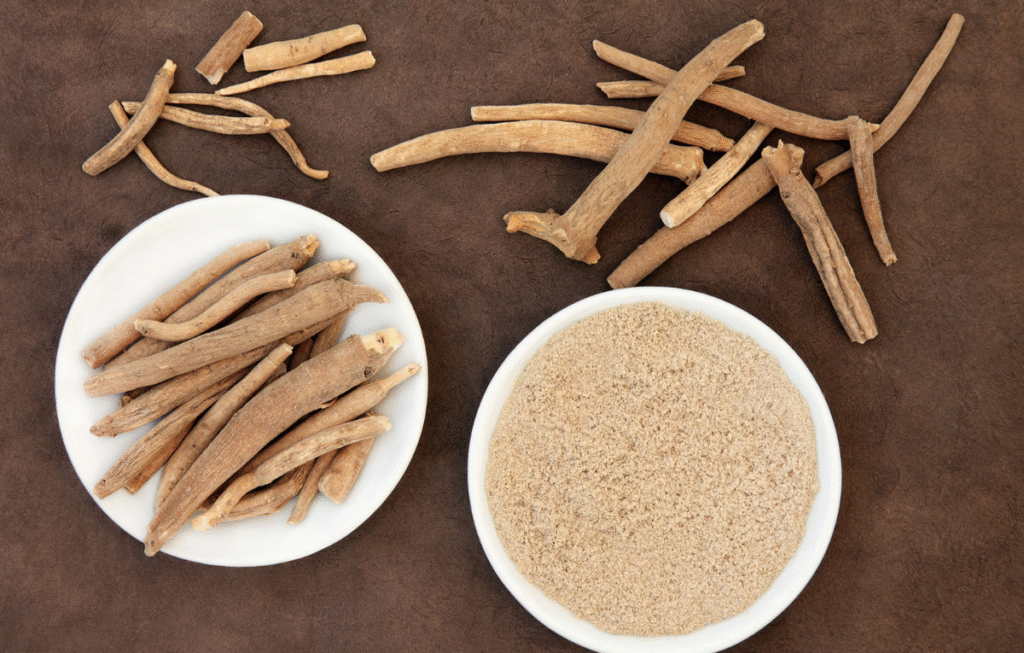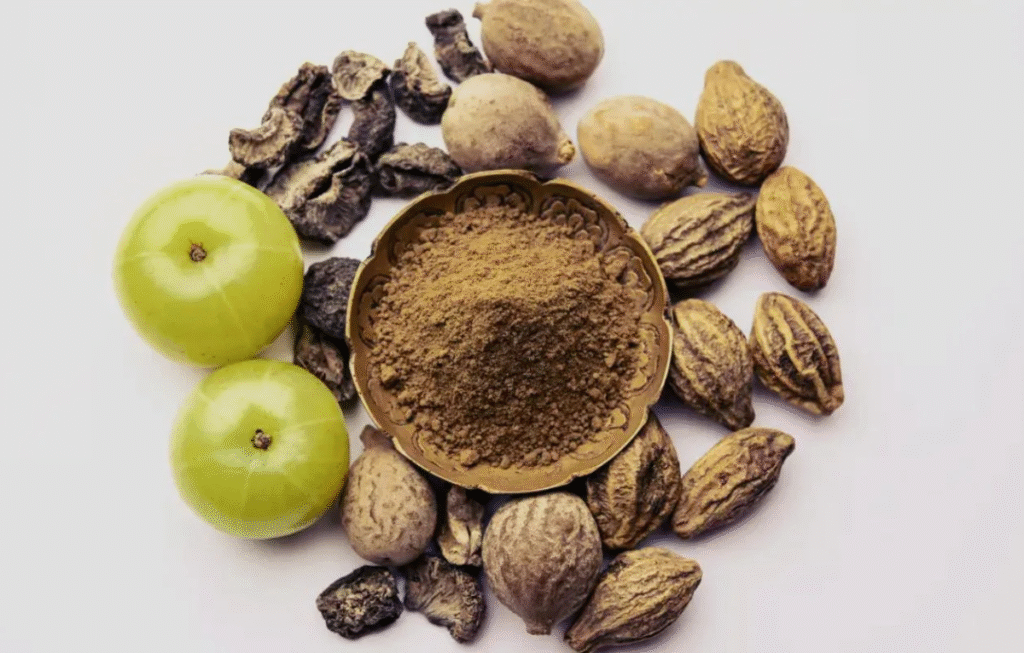We have a small gland in the lower throat region of our body known as the thyroid. Though tiny, its impact is immense. It regulates many key functions of our body, such as metabolism (how fast food is processed and used to produce energy), body temperature, levels of energy, weight, and mood.
When this gland goes awry, two kinds of issues crop up:
- Hypothyroidism: The thyroid gland makes fewer hormones. This causes issues such as weight gain, fatigue, constipation, dry skin, and hair loss.
- Hyperthyroidism: The thyroid gland makes more hormones than required. This may produce weight loss, restlessness, insomnia, fast heartbeats, and mood swings.
These conditions are now treated with drugs and, at times, surgery by modern medicine. But Ayurveda, 5,000-year-old Indian natural system of medicine, provides a natural and harmless means of maintaining thyroid health by balancing body and mind.
Ayurveda does not merely treat the disease; it attempts to balance at the core. It integrates herbs, diet, and lifestyle modification. This is why it can be so helpful for hormonal issues such as thyroid. Today, we will discover four potent Ayurvedic remedies that feed the thyroid, balance the hormones, and build both body and mind health.
1. Ashwagandha – The Thyroid-Boosting Adaptogen

Indian ginseng is one of the most popular herbs of Ayurveda, Withania somnifera. Ashwagandha is an adaptogen, an herb that aids the body in adapting to stress.
Stress: hormones-Tendency are interlinked. Once stress increases, the body produces more of a hormone, that is cortisol, which in turn prevents thyroid from working. Ashwagandha controls this cortisol and keeps in balance the secretion of thyroid hormone.
Benefits for Thyroid Health
- Enhances the secretion of hormones in hypothyroid or underactive thyroid.
- Gives calmness of mind by relieving stress and anxiety.
- Relieves tiredness and weakness to increase energy.
- Supports the endocrine system (the whole hormonal system).
How to Use Ashwagandha
- Powder: Take half a teaspoon with lukewarm milk or water before sleep.
- Capsules/Tablets: Take 300–500 mg per day, according to your Ayurvedic physician.
- Ashwagandha Tea: Boil the dried root of Ashwagandha for 10 minutes in water, then filter and drink.
Pro Tip
While Ashwagandha is beneficial in cases of hypothyroidism, with hyperthyroidism, it should be consumed only with medical supervision.
Example: Many people who constantly feel tired and lethargic experience increased energy and better sleep after taking ashwagandha for a few weeks.
2. Guggul – The Metabolism Enhancer

Guggul (Commiphora mukul) is a gum/resin from a banyan-type shrub and has been used in Ayurveda for thousands of years, often for obesity, inflammation, and thyroid conditions.
Guggulu is often a part of an Ayurvedic medicinal called Kanchanar Guggulu that is used specifically in thyroid conditions or conditions that note goiter.
Benefits for Thyroid Health
- Stimulates production of thyroid hormone.
- Speeds up a slow metabolism thus controlling weight.
- Assists in flushing inflammation and toxins from the body.
- Reduces cholesterol and improves circulation.
How to Use Guggul
- Guggulu Supplements: Consume in capsule or tablet form as directed by your Ayurvedic physician.
- Kanchanar Guggulu: An ancient Ayurvedic blend. The dose is usually 1–2 tablets twice daily on an empty stomach (discuss with your physician as well).
Pro Tip:
Do not take guggulu continuously if you have bile problems without the direction of your doctor.
Note: The majority of people with difficulty losing weight due to hypothyroidism report that guggulu improves their metabolism.
3. Triphala – The Gentle Detoxifier

Triphala is a time-tested Ayurvedic medicine composed of three fruits:
- Amla (Amla)
- Haritaki
- Baheda (Bibhitaki)
Triphala removes ama (toxins and indigestion) from the body. It enhances digestion, fortifies the liver, and aids in the absorption of nutrients.
Benefits for Thyroid Health
- Removes toxins from the body and balances hormone secretion.
- Enhances digestion and health of the gut.
- Relieves constipation, a typical symptom of hypothyroidism.
- Increases metabolism and energy.
How to Use Triphala
- Powder: Mix half to one teaspoon with lukewarm water and consume before sleeping.
- Capsules/Tablets: Consume 1 to 2 tablets with lukewarm water at bedtime.
Pro Tip
Triphala is extremely safe and may be consumed on a long-term basis. It may, however, cause a mild laxative effect during the first few days.
Example: Individuals suffering from constipation and heaviness can observe easier digestion and an increase in energy upon regular Triphala intake.
4. Yoga, Pranayama, and Daily Routine (Dinacharya)

Ayurveda is not only about herbs and medicines. It also lays a lot of emphasis on a proper way of life. A right daily schedule, yoga, and pranayama can greatly help in maintaining thyroid health.
- Yoga Poses
- Some asanas stimulate the thyroid by stretching and enhancing the blood supply to the throat area
- Shoulder Stand
- Matsyasana (Fish Pose)
- Halasana (Plow Pose)
- Setu Bandhasana (Bridge Pose)
- Breathing Practices
- Ujjayi Pranayama (Victorious Breath): Stimulates the throat muscles.
- Bhramari Pranayama (Bee Breath): Relaxes the mind and lessens stress.
- Daily Routine
- Wake up early in the morning and have lukewarm water.
- Take meals at fixed times and do not stay up late at night.
- Do a minimum of 20–30 minutes of yoga or mild exercise daily.
Benefits for Thyroid Health
- Improves blood flow to the thyroid gland.
- Lessens stress and enhances sleep.
- Metabolism accelerates and energy is boosted.
Example: Improvement in fatigue, mood swings, and sleep issues has been observed in many after only 15–20 minutes of yoga and pranayama.
Ayurvedic Diet Tips for Thyroid Balance
The diet is to be given a prime consideration besides herb List and yoga.
- Iodine foods: seaweed; iodized salt (take in moderate amounts).
- Selenium foods: Brazil nuts, sunflower seeds, eggs; spices such as: turmeric, cumin, coriander, and black pepper both help digestion and reduce inflammation.
- Avoid goitrogen foods: raw cabbage, cauliflower, broccoli; eat cooked.
- Hot water and herbal teas: Good for blood circulation and metabolism.
Precautions and When to Consult a Doctor
- Make sure to check TSH, T3, and T4 before starting any Ayurvedic treatment.
- Visit an Ayurvedic physician regarding your Prakriti; Vata, Pitta, Kapha—dosage forms.
- If you are taking any medication for thyroid problems, you cannot stop medication without your doctor’s approval.
Conclusion
Ayurvedic philosophy teaches us that genuine healing occurs when body, mind, and spirit are in balance. Thus, the treatment with these herbs -Ashwagandha, Guggulu and Triphala- along with yoga and pranayama, provides a one hundred percent natural remedy for balancing the thyroid.
While natural remedies can be slow to act, it will provide deep, long-lasting relief, and you will feel better, while a natural remedy. Remember, if you follow a healthy diet, healthy sleep schedule, a healthy lifestyle, lower stress, and always have routines, your thyroid will be healthier, and overall health will improve.
FAQs:-
Which Ayurvedic herbs are best for thyroid health?
Ashwagandha, Guggul, Triphala, and Brahmi are commonly recommended for balancing thyroid hormones and boosting metabolism.
What lifestyle changes does Ayurveda suggest for thyroid health?
Ayurveda recommends regular yoga, stress management, balanced meals, and adequate sleep to support thyroid function.
How long does it take for Ayurvedic remedies to work?
Results may take a few weeks to months as Ayurveda focuses on gradual, holistic healing rather than quick fixes.
Medical Disclaimer
The information provided on Health Tips India is intended for educational and informational purposes only. It should not be considered a substitute for professional medical advice, diagnosis, or treatment.
Always consult a qualified healthcare professional before making any health-related decisions or changes to your diet, exercise, or medical routine.
SamhithaHealth & Wellness Content Writer
a Health & Wellness Content Writer with over 6 years of experience creating research-based health articles. She specializes in nutrition, weight management, diabetes care, skin health, and healthy lifestyle practices. Here content is carefully written using trusted medical and scientific sources to ensure accuracy and clarity for readers.

